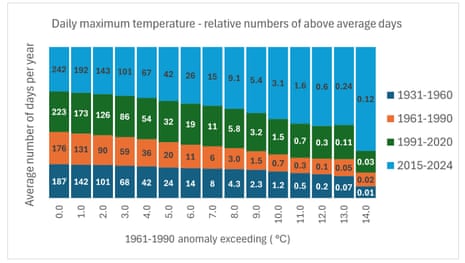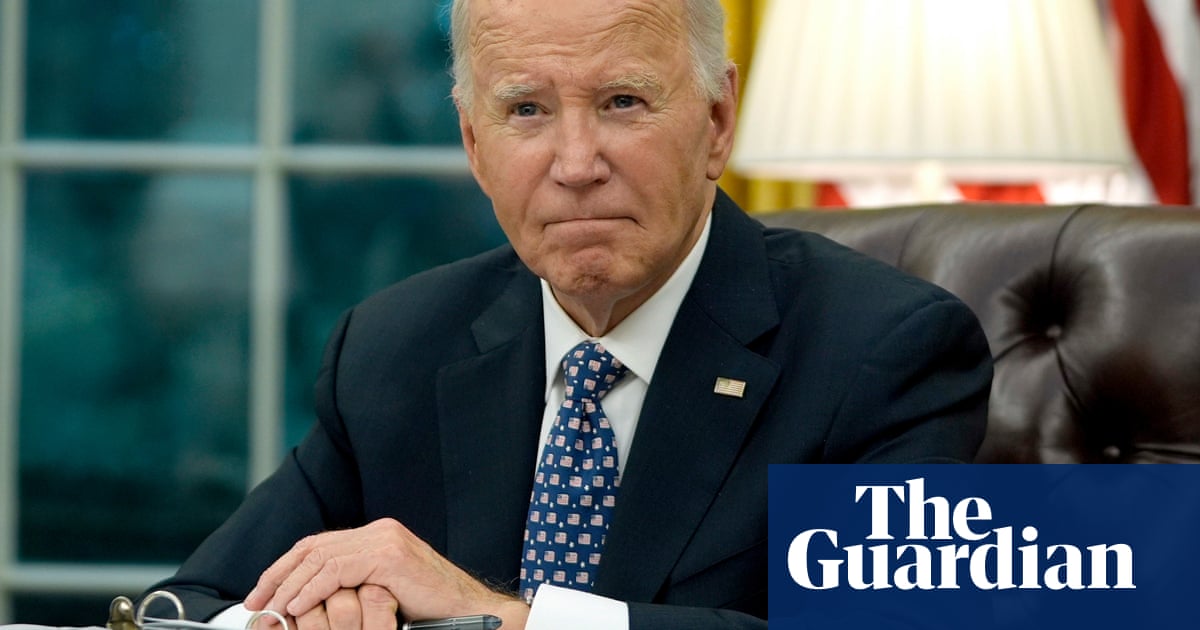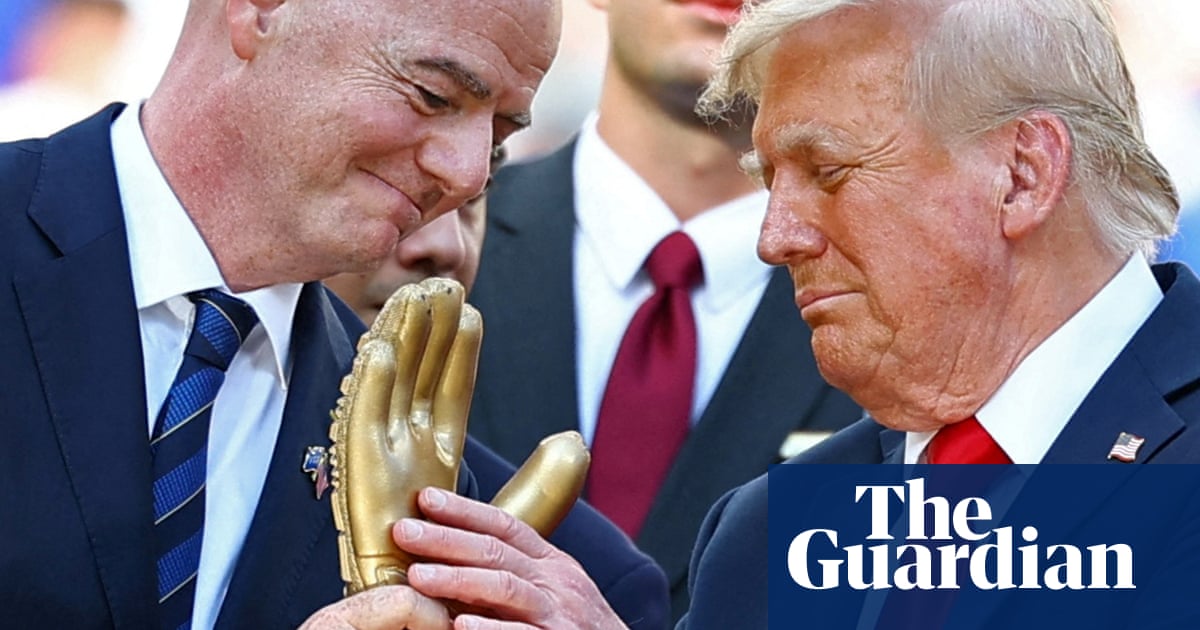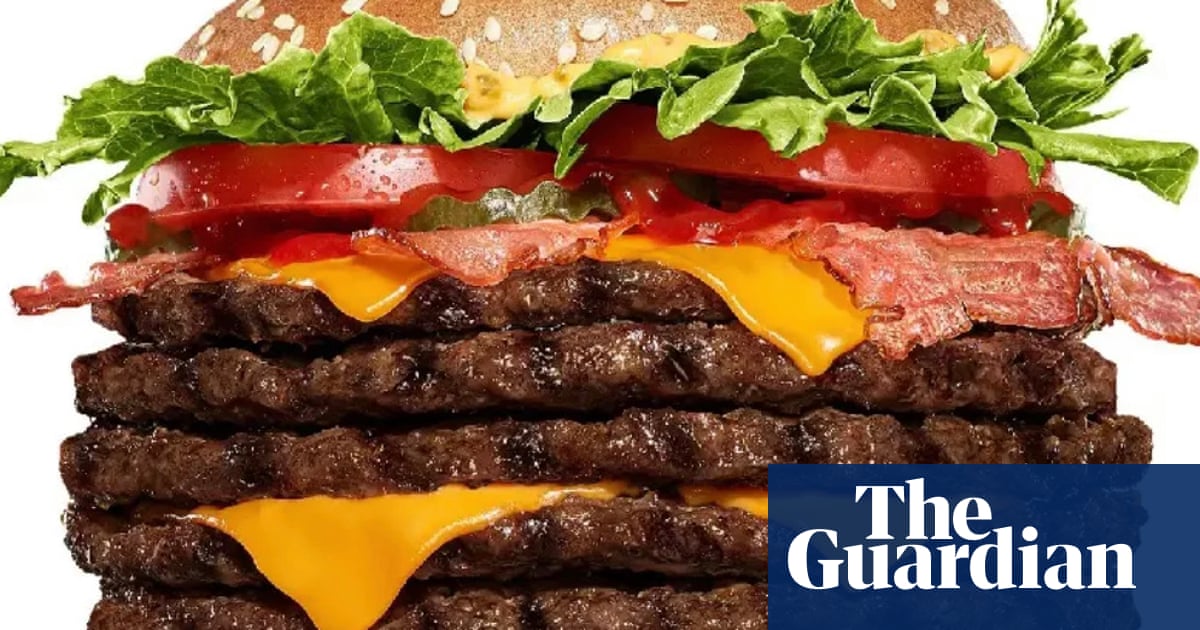Darren Jones also declines to rule out wealth tax when questioned about government plans
LIVE Updated 8m ago

Darren Jones. Photograph: Sean Smith/The Guardian
Show key events only Please turn on JavaScript to use this feature
Live feed
Treasury minister Darren Jones says ‘headline’ rate of income tax won’t go up, in hint thresholds might be frozen in budget
Good morning. This is the last full week the Commons is sitting before the summer recess starts (on Tuesday next week) and, although there is a fair amount coming up (see below), there is no big story dominating the news agenda. The national newspapers are all splashing on different items – which is normally a sign that it was a slow news day yesterday.
The government wants to talk about its new £500m “better futures fund”.
And Darren Jones, chief secretary to the Treasury, has been in the broadcast studios this morning to promote it – as well as giving an interview to my colleague Heather Stewart.
But, as is often the case, in search of stronger news, broadcasters have been trying to tease out details of what might be in the budget in the autumn. And they may have made a tiny bit of progress.
At PMQs last week Keir Starmer said that he remained committed to the tax pledges that Labour made in its manifesto. That might sound straightforward, but it isn’t, because there is some ambiguity as to what they mean.
People thought Labour promised not to raise income tax, VAT or national insurance contributions (NICs) – which are levied on employers and employees. But in the budget last year Rachel Reeves did put up employer NICs and, when accused of breaking a manifesto promise, she highlighted the eight-word preamble to the pledge, which in retrospect could be read as a hint that employer NICs were not exempt. The manifesto said:
Labour will not increase taxes on working people, which is why we will not increase National Insurance, the basic, higher, or additional rates of Income Tax, or VAT.
The person who wrote the manifesto clearly knew what was coming – but the clue was hidden so well that almost no one managed to decypher it.
In an interview on ITV’s Good Morning Britain Jones said:
The thing I can tell you is that our manifesto commitment coming into this election was that we were not going to increase the headline rate of income tax or employee national insurance on working people in the pay slips that people get when they go to work or on VAT because we know that that disproportionately affects people on lower incomes because they spend more of their money on the day to day shop, essentially.
In fact, the manifesto does not mention the “headline” rate of income tax. But the fact that Jones sees this as relevant can be seen as yet another hint that Rachel Reeves is considering extending the freeze on income tax thresholds in the autumn. This is seen by economists as very likely, and was not ruled out by Starmer at PMQs last week.
Ed Balls, the former Labour shadow chancellor who is now a broadcaster and podcaster, regularly argues on his Political Currency podcast that freezing tax thresholds would in practice be a breach of the manifesto, because it would amount to a tax increase for working people. Jones’s comment can be seen as Treasury rebuttal to this allegation.
In his interviews Jones declined to rule out a wealth tax, as other ministers have done. But he also suggested that people were “getting a bit carried away” in interpreting what Heidi Alexander, the transport secretary, said about tax yesterday. Alexander told Sky News:
We made a commitment in our manifesto not to be putting up taxes on people on modest incomes, working people.
The Telegraph has interpreted this as meaning that taxes will rise for middle-class workers. But, in his Good Morning Britain interview, Jones said Alexander was just referring to the manifesto promise. Asked what “modest incomes” meant, he went on:
Modest income means different things to different people. But it’s not entirely relevant, because the thing that is relevant is our manifesto commitment not to increase national insurance or employee national or income tax in the payslips that people receive every month.
Jack Maidment from the Telegraph argues that the mixed messaging is a bit of a mess.
Treasury minister Darren Jones says Labour’s “working people” tax pledge refers to “anyone that gets a payslip, basically”.
Significantly broader than Transport Sec Heidi Alexander’s definition yesterday of “people on modest incomes”.
What a mess, and not for the first time.
Here is the agenda for the day.
10.30am: Sajid Javid, the former Tory health secretary, gives evidence to the Covid inquiry about the impact of the pandemic on the care sector.
Morning: Rachel Reeves, chancellor, speaks to broadcasters on a visit in Wigan where she is promoting plans for a £500m “beter futures fund”.
11.30am: Downing Street holds a lobby briefing.
2pm: Wes Streeting, health secretary, gives evidence to the health committee.
2.30pm: Angela Rayner, deputy PM and housing secretary, takes questions in the Commons.
After 3.30pm: Ed Miliband, energy secretary, is expected to make a statement to MPs about the state of the climate report.
Afternoon: Keir Starmer hosts Petr Fiala, prime minister of the Czech Republic, at Downing Street.
5pm: Pat McFadden, Cabinet Office minister, gives evidence to the joint national security strategy committee.
And at some point today the Department for Business and Trade publishes a green paper on the Post Office.
If you want to contact me, please post a message below the line when comments are open (normally between 10am and 3pm at the moment), or message me on social media. I can’t read all the messages BTL, but if you put “Andrew” in a message aimed at me, I am more likely to see it because I search for posts containing that word.
If you want to flag something up urgently, it is best to use social media. You can reach me on Bluesky at @andrewsparrowgdn.bsky.social. The Guardian has given up posting from its official accounts on X, but individual Guardian journalists are there, I still have my account, and if you message me there at @AndrewSparrow, I will see it and respond if necessary.
I find it very helpful when readers point out mistakes, even minor typos. No error is too small to correct. And I find your questions very interesting too. I can’t promise to reply to them all, but I will try to reply to as many as I can, either BTL or sometimes in the blog.
Key events Show key events only Please turn on JavaScript to use this feature
‘Profound concern’ as scientists say extreme heat ‘now the norm’ in UK
Record-breaking extreme weather is the new norm in the UK, a report by the Met Office says. Damian Carrington has the story.
Here is the Met Office summary. And here is the full report.
The Met summary says:
The number of days with temperatures 5°C above the 1961-1990 average has doubled for the most recent decade 2015-2024 compared to 1961-1990. For 8°C above average the number has trebled and for 10°C it has quadrupled. This shows how the hottest days we experience in the UK have increased in frequency dramatically in just a few decades.

Ed Miliband is expected to make a statement to MPs on this later.
Mutualistion to be considered as ownership model for Post Office under review launched by ministers
The government is considering changing the Post Office’s ownership structure to a mutual model, as it hopes to avoid further miscarriages of justice following the Horizon IT scandal, PA Media reports.
A new green paper published by the Department for Business and Trade sets out the first major review of the organisation in 15 years and launched a three-month consultation over the future of the Post Office. Ministers also announced plans to award a new subsidy package worth £118m to fund a transformation plan and further investment, PA says.
DBT said:
Working hand in hand with postmasters and the public the government will ensure the network is put on a path to a strong and sustainable future with Post Office branches remaining at the heart of communities across the UK.
This includes on the Post Office’s ownership model, with concepts including mutualisation on the table for consideration following the publication of the final Horizon Inquiry report later this year.
Post Office minister Gareth Thomas said:
Post Offices continue to be a central part of our high streets and communities across the country.
However, after 15 years without a proper review, and in the aftermath of the Horizon scandal, it’s clear we need a fresh vision for its future.
This green paper marks the start of an honest conversation about what people want and need from their Post Office in the years ahead.
Genocide prevention could become legal priority for UK government
Clearer legal obligations on the British government to prevent genocides, and to determine if one is occurring rather than leaving such judgments to international courts, are to be considered by a cross-party group of lawyers, politicians and academics under the chairmanship of Helena Kennedy, Patrick Wintour reports.
Bank of England could cut rates faster if jobs market slows, governor says
In an interview with the Times, Andrew Bailey, governor of the Bank of England, says firms are “adjusting employment and hours” in the light of last year’s rise in employer NICs. That sounds like a euphemism for cutting jobs. But he says, if the labour market slow down, the Bank may respond by cutting interest rates more aggressively.
Asked about this comment in an interview on the Today programme, Darren Jones, chief secretary to the Treasury, played down the impact of the budget. He said:
There’ve also been hundreds of thousands of new jobs created across the economy, and in the first quarter of the year [we had] the fastest growing economy in the G7, so we’re doing everything we can to create conditions for businesses to be profitable and to be able to grow.
Of course, we had that particular tax decision in the budget last year, because our commitment was to protect working people in their pay slips. And I recognise the independence of the bank governor.
Graeme Wearden has more on the Bailey interview in his business live blog.
Treasury minister Darren Jones says ‘headline’ rate of income tax won’t go up, in hint thresholds might be frozen in budget
Good morning. This is the last full week the Commons is sitting before the summer recess starts (on Tuesday next week) and, although there is a fair amount coming up (see below), there is no big story dominating the news agenda. The national newspapers are all splashing on different items – which is normally a sign that it was a slow news day yesterday.
The government wants to talk about its new £500m “better futures fund”.
And Darren Jones, chief secretary to the Treasury, has been in the broadcast studios this morning to promote it – as well as giving an interview to my colleague Heather Stewart.
But, as is often the case, in search of stronger news, broadcasters have been trying to tease out details of what might be in the budget in the autumn. And they may have made a tiny bit of progress.
At PMQs last week Keir Starmer said that he remained committed to the tax pledges that Labour made in its manifesto. That might sound straightforward, but it isn’t, because there is some ambiguity as to what they mean.
People thought Labour promised not to raise income tax, VAT or national insurance contributions (NICs) – which are levied on employers and employees. But in the budget last year Rachel Reeves did put up employer NICs and, when accused of breaking a manifesto promise, she highlighted the eight-word preamble to the pledge, which in retrospect could be read as a hint that employer NICs were not exempt. The manifesto said:
Labour will not increase taxes on working people, which is why we will not increase National Insurance, the basic, higher, or additional rates of Income Tax, or VAT.
The person who wrote the manifesto clearly knew what was coming – but the clue was hidden so well that almost no one managed to decypher it.
In an interview on ITV’s Good Morning Britain Jones said:
The thing I can tell you is that our manifesto commitment coming into this election was that we were not going to increase the headline rate of income tax or employee national insurance on working people in the pay slips that people get when they go to work or on VAT because we know that that disproportionately affects people on lower incomes because they spend more of their money on the day to day shop, essentially.
In fact, the manifesto does not mention the “headline” rate of income tax. But the fact that Jones sees this as relevant can be seen as yet another hint that Rachel Reeves is considering extending the freeze on income tax thresholds in the autumn. This is seen by economists as very likely, and was not ruled out by Starmer at PMQs last week.
Ed Balls, the former Labour shadow chancellor who is now a broadcaster and podcaster, regularly argues on his Political Currency podcast that freezing tax thresholds would in practice be a breach of the manifesto, because it would amount to a tax increase for working people. Jones’s comment can be seen as Treasury rebuttal to this allegation.
In his interviews Jones declined to rule out a wealth tax, as other ministers have done. But he also suggested that people were “getting a bit carried away” in interpreting what Heidi Alexander, the transport secretary, said about tax yesterday. Alexander told Sky News:
We made a commitment in our manifesto not to be putting up taxes on people on modest incomes, working people.
The Telegraph has interpreted this as meaning that taxes will rise for middle-class workers. But, in his Good Morning Britain interview, Jones said Alexander was just referring to the manifesto promise. Asked what “modest incomes” meant, he went on:
Modest income means different things to different people. But it’s not entirely relevant, because the thing that is relevant is our manifesto commitment not to increase national insurance or employee national or income tax in the payslips that people receive every month.
Jack Maidment from the Telegraph argues that the mixed messaging is a bit of a mess.
Treasury minister Darren Jones says Labour’s “working people” tax pledge refers to “anyone that gets a payslip, basically”.
Significantly broader than Transport Sec Heidi Alexander’s definition yesterday of “people on modest incomes”.
What a mess, and not for the first time.
Here is the agenda for the day.
10.30am: Sajid Javid, the former Tory health secretary, gives evidence to the Covid inquiry about the impact of the pandemic on the care sector.
Morning: Rachel Reeves, chancellor, speaks to broadcasters on a visit in Wigan where she is promoting plans for a £500m “beter futures fund”.
11.30am: Downing Street holds a lobby briefing.
2pm: Wes Streeting, health secretary, gives evidence to the health committee.
2.30pm: Angela Rayner, deputy PM and housing secretary, takes questions in the Commons.
After 3.30pm: Ed Miliband, energy secretary, is expected to make a statement to MPs about the state of the climate report.
Afternoon: Keir Starmer hosts Petr Fiala, prime minister of the Czech Republic, at Downing Street.
5pm: Pat McFadden, Cabinet Office minister, gives evidence to the joint national security strategy committee.
And at some point today the Department for Business and Trade publishes a green paper on the Post Office.
If you want to contact me, please post a message below the line when comments are open (normally between 10am and 3pm at the moment), or message me on social media. I can’t read all the messages BTL, but if you put “Andrew” in a message aimed at me, I am more likely to see it because I search for posts containing that word.
If you want to flag something up urgently, it is best to use social media. You can reach me on Bluesky at @andrewsparrowgdn.bsky.social. The Guardian has given up posting from its official accounts on X, but individual Guardian journalists are there, I still have my account, and if you message me there at @AndrewSparrow, I will see it and respond if necessary.
I find it very helpful when readers point out mistakes, even minor typos. No error is too small to correct. And I find your questions very interesting too. I can’t promise to reply to them all, but I will try to reply to as many as I can, either BTL or sometimes in the blog.
Explore more on these topics

 4 hours ago
3
4 hours ago
3

















































